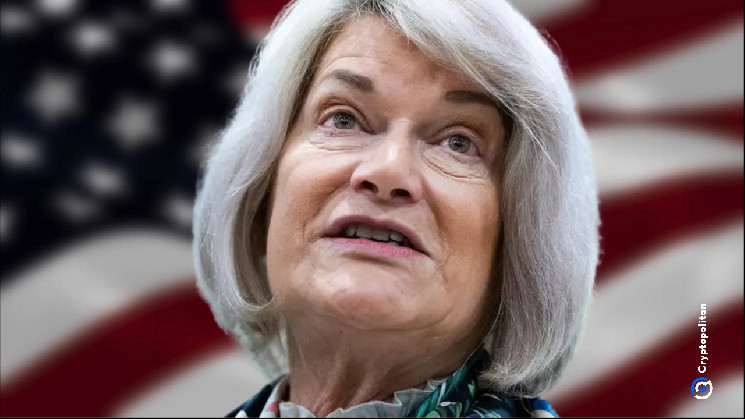Senator Elizabeth Warren brought the heat ahead of Treasury Secretary nominee Scott Bessent’s confirmation hearing scheduled for Thursday.
The Massachusetts senator sent Bessent a scathing 31-page letter packed with questions demanding clarity on his plans for crypto oversight, financial deregulation, and tax policy. Bessent, a hedge fund veteran with no government experience, has drawn sharp criticism for his Wall Street ties.
🚨NEW: @SenWarren’s 31-page letter to Treasury Secretary nominee Scott Bessent previews a number of crypto-related questions she plans to ask during his confirmation before the Senate Finance Committee on Thursday.
Questions include whether he thinks the Treasury’s sanctions arm… pic.twitter.com/b4OyGW4tOy
— Eleanor Terrett (@EleanorTerrett) January 13, 2025
Warren wasted no time outlining her doubts, questioning whether he has the chops to handle the sprawling responsibilities of Treasury Secretary — ranging from managing public debt to overseeing sanctions, tax policy, and combating money laundering.
Warren demands clarity
Crypto regulation sat squarely at the top of Warren’s list of concerns. She asked if Bessent believed the Treasury’s sanctions division, the Office of Foreign Assets Control (OFAC), should have jurisdiction over stablecoins.
Warren pushed Bessent on whether OFAC should have tools to shut down crypto firms that pose risks to the US financial system. She pointed to the lack of a strong regulatory framework as a major threat.
“Do you think the Treasury should step in and address these gaps?” she wrote, pressing Bessent on how he’d manage potential abuse of stablecoins for money laundering or sanctions evasion.
Her skepticism wasn’t just at crypto companies. Warren took a swipe at fintech and other unregulated sectors, asking whether Bessent had concrete plans to mitigate risks posed by emerging financial technologies. “This isn’t a sandbox; it’s a system that hardworking Americans rely on,” she said.
The weight of deregulation
Warren’s questions went beyond crypto. She zeroed in on Bessent’s track record of supporting deregulation. In a Wall Street Journal op-ed, Bessent hailed Trump-era deregulation policies, calling for a reprivatized economy.
But Warren isn’t buying it. She pointed out how deregulation helped tank the economy in 2008, costing nearly $20 trillion and displacing millions of families.
Her letter connected the dots between Trump’s Economic Growth, Regulatory Relief, and Consumer Protection Act (EGRRCPA) and the 2023 collapse of Silicon Valley Bank (SVB). The Federal Reserve blamed weakened regulations—courtesy of EGRRCPA—for SVB’s failure.
“Do you agree with this assessment?” Warren asked. “What’s your plan to ensure deregulation doesn’t cause another banking crisis?”
She also demanded Bessent commit to upholding the Dodd-Frank Act, the post-2008 legislation designed to prevent financial meltdowns. “Will you fully enforce the law Congress passed to keep banks in check?” she pressed. Bessent’s vague responses about “evaluating the framework” likely won’t fly come Thursday.
Tax policy and Trump’s economic legacy
Bessent’s tax policy plans were another flashpoint. Warren slammed his support for Trump’s tax cuts, which slashed corporate tax rates but added $4.5 trillion to the federal deficit.
The Congressional Budget Office (CBO) reported these cuts failed to achieve the promised 3% economic growth, leaving Warren to ask, “Why didn’t it work, and why double down?”
Her letter dug into Bessent’s “3-3-3” plan—a strategy to cut taxes, reduce the deficit, and boost growth. She called it a pipe dream, questioning how Bessent would reconcile slashing taxes with reducing the deficit.
“Do you really believe tax cuts pay for themselves?” she wrote, pointing to CBO projections showing the opposite. Warren asked whether Bessent supported rolling back Trump’s tax cuts for the wealthy, which disproportionately benefited high-income households.
She also grilled him on closing the carried interest loophole—a move that could raise $63.1 billion in revenue over ten years—and implementing a global minimum tax to prevent multinational corporations from dodging taxes.
Bessent’s stance on the Corporate Alternative Minimum Tax (CAMT) also came under scrutiny. Warren demanded a firm commitment to enforcing the tax, which targets the most profitable companies and is projected to generate $250 billion over a decade.
“Will you finalize these regulations quickly, or will you cave to lobbyists?” she asked.
Small banks, big risks
Warren also turned her attention to the alarming decline of small banks. In 1994, small banks made up 84% of all US banks. By 2022, that number had dropped to just 52%. Warren tied this trend to increased financial instability, as the collapse of community banks has left smaller businesses vulnerable.
“Do you believe small businesses deserve a safe place for their deposits?” she asked, pointing out how large corporations often get bailed out while smaller players are left to fend for themselves.
She criticized the government’s use of the systemic risk exception during the 2023 banking crisis, which allowed uninsured deposits at SVB and Signature Bank to be backstopped.
Warren questioned whether Bessent agreed with proposals to limit the FDIC’s ability to sell failing banks to megabanks like JPMorgan. “Do you think consolidation is a threat to financial stability?” she pressed.
Her letter called for bipartisan efforts to raise deposit insurance limits for small businesses and protect community banks from being overshadowed by larger institutions. “What’s your plan to ensure small banks can survive in this environment?” she wrote.
IRS budget cuts and tax fairness
Warren didn’t let up on IRS oversight. She slammed Republican efforts to slash $20 billion from the IRS budget, a move she warned would cripple enforcement against wealthy tax cheats.
“How do you plan to maintain audit quality without funding?” she asked, citing data showing the IRS recovers substantial revenue from auditing large corporations.
Her letter also flagged privacy concerns, pointing to tax preparation companies that illegally shared sensitive taxpayer data with tech firms. She demanded Bessent commit to prosecuting violators and enforcing stricter consumer protections.
Warren’s grilling extended to whether Bessent would safeguard taxpayer privacy, resist political interference, and ensure the IRS prioritizes fairness.
“For every dollar spent targeting corporate tax compliance, how much does the IRS recover?” she asked, hammering home the importance of holding the rich accountable.
Read the full article here









